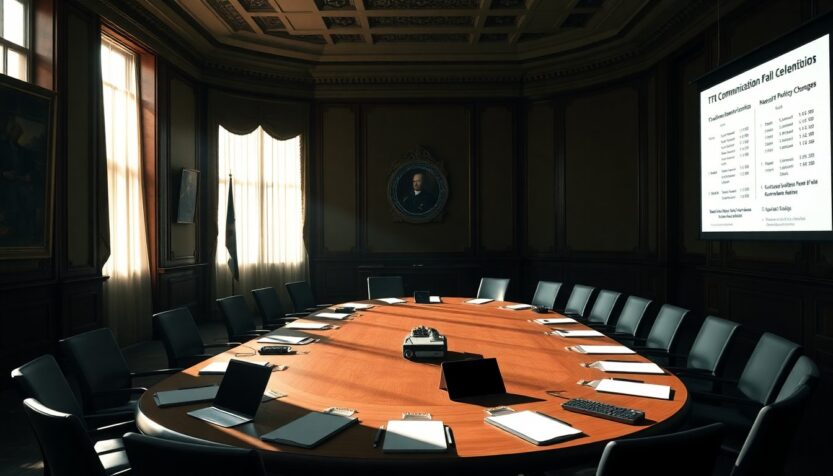The Federal Communications Commission (FCC), established by the Communications Act of 1934, was created to serve the public interest. This principle, emphasized throughout the agency’s foundational document, has come under increased scrutiny during the Trump administration. Under Chairman Brendan Carr’s leadership, the FCC has realigned its focus, prioritizing the interests of the Trump administration and scrutinizing media outlets that diverge from official narratives.
This article examines the implications of these changes, particularly regarding the FCC’s role in regulating broadcasters and the broader effects on press freedom in the United States.
Media Regulation and Political Influence
Since the onset of Trump’s presidency, the FCC has adopted a proactive stance towards media organizations, notably targeting major networks like ABC News and CBS News. These outlets have faced investigations and criticisms, particularly concerning their reporting on the administration. The suspension of Jimmy Kimmel for his comments about the administration’s policies illustrates this trend, underscoring how media figures can become targets when they challenge political narratives.
Commissioner Anna Gomez, the FCC’s only Democratic member, has expressed significant concerns regarding these developments. During a recent train journey to New York, Gomez articulated her alarm over what she views as a campaign against free press and free expression within her agency. She worries that the administration’s actions could establish a dangerous precedent for censorship under the guise of political accountability.
The Threat to Free Speech
Gomez highlighted that the FCC lacks the authority to revoke licenses based on unfavorable opinions. “The commission does not possess the constitutional mandate to censor speech that it finds objectionable,” she stated, asserting that the agency’s threats are primarily rhetorical. The FCC cannot take extreme measures against media outlets solely based on content, such as revoking broadcasting licenses over a comedian’s satirical remarks.
However, the atmosphere of fear and self-censorship among media companies has intensified. For example, Nexstar, the largest television station operator in the U.S., has opted to preempt Kimmel’s show during its merger negotiations with Tegna, seemingly to appease the FCC. This decision raises serious ethical questions about how far companies might go to align with government expectations, potentially compromising their First Amendment rights.
First Amendment Rights and Corporate Responsibility
The self-censorship displayed by media companies in anticipation of regulatory pressures is concerning. Companies must recognize the importance of standing firm against such pressures. Gomez argues that businesses should defend their First Amendment rights rather than yield to the administration’s demands. She insists that the commission must never condition governmental actions, such as licensing decisions, on the content or viewpoints expressed by media companies.
Given past instances, such as the Paramount-Skydance merger, where corporations yielded to perceived government pressures, it is vital to understand the implications of such actions. The creation of a truth ombudsman to address complaints about news content reflects a troubling trend of preemptive self-regulation that undermines the essence of a free press.
Legal Implications and Future Outlook
Gomez asserts that any legal challenge to the FCC’s actions would likely succeed based on the free speech principles enshrined in the First Amendment. The chilling effect of the FCC’s pressure tactics is a primary concern, as it cultivates a climate of fear rather than promoting accountability within the media landscape.
As the nation nears a critical juncture in its political landscape, the actions of the FCC under Trump’s administration signify a considerable shift in the relationship between government and media. The ongoing discourse surrounding these changes raises essential questions about the future of press freedom and the safeguarding of democratic values in the United States.

